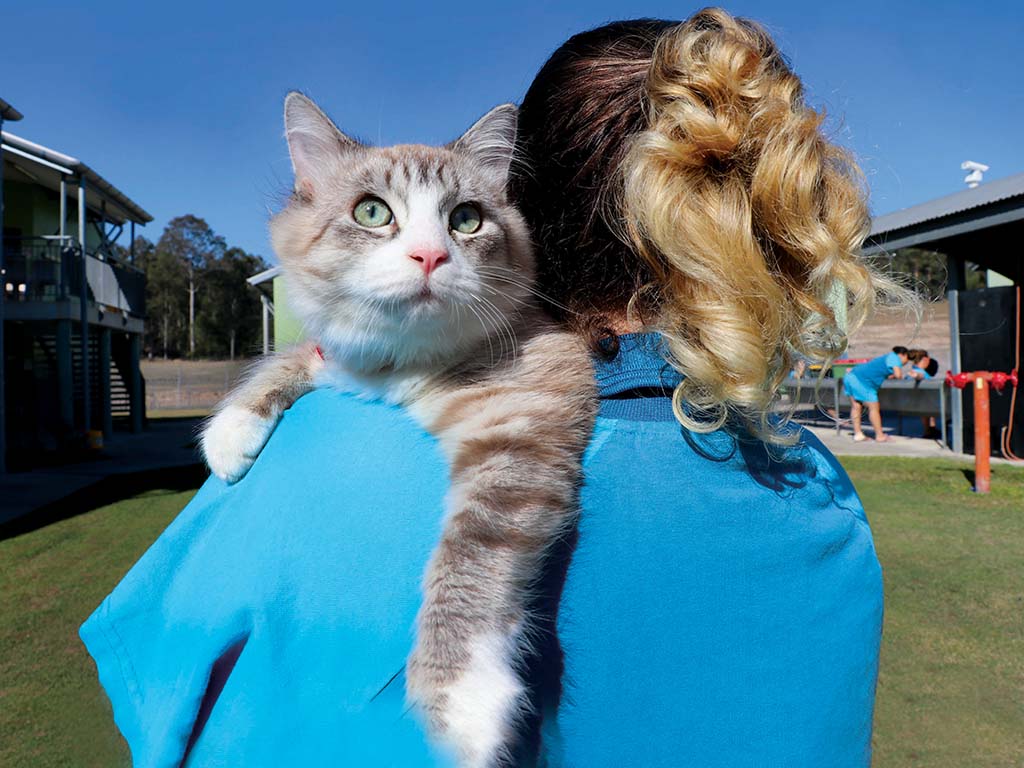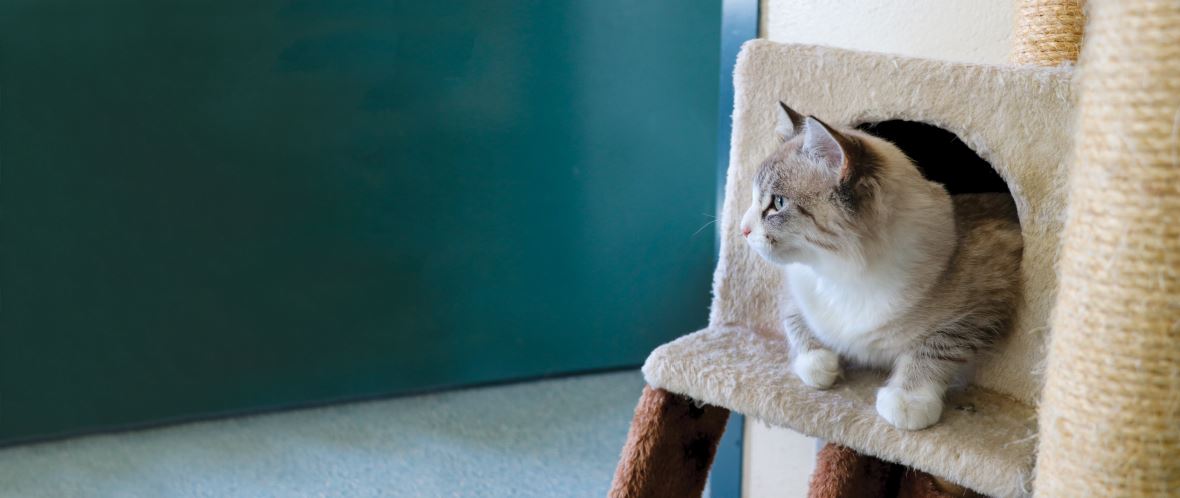Female prisoners making a difference for pets in crisis

Across Queensland, our officers are committed to playing a role in ending Domestic and Family Violence (DFV). We work closely with perpetrators to address their behaviours and deliver rehabilitative programs focusing on violence, sexual offending, substance abuse and mental health which have been linked to DFV.
But the Brisbane Women’s Correctional Centre (BWCC) is taking the lead in assisting the four-legged victims of DFV who often go overlooked.
BWCC has a history of working with the RSPCA – initially starting off with the Second Chance foster program for neglected and sick cats in 2014. Since then, they’ve become involved with the Pets in Crisis program, working in conjunction with the RSPCA and DV Connect to provide refuge to cats from domestic violence situations. Throughout this time almost 200 cats have been cared for by BWCC prisoners.
With approximately 87% of women in custody identifying as being the victims of abuse, having the opportunity to participate in the fostering program is particularly meaningful for them. Partaking in the program is seen as a privilege for the women, who must portray exceptional behaviour to be considered.
The foster program was masterminded by BWCC Supervisor, Marilyn Cook and RSPCAs Julie Herbert.
“For women in violent situations where there is a family pet present, they may remain in that situation because of concern for the welfare of their pet if they were to leave,” says Julie.
Animals are able to be reunited with their families once they have obtained safe accommodation.

Commissioner Peter Martin praised the exceptional outcomes of the program. “Unfortunately many domestic violence refuges are not equipped to accept pets. It is unimaginable to consider the conflict some victims experience in attempting to leave a violent home. This program makes a world of difference, ensuring animals are protected from violence in a safe environment with trained carers who are available 24/7,” he said.
To be considered for the programs, the women must demonstrate exceptional behaviour and undergo an extensive three-month ‘cat carer’ training program facilitated by the RSPCA where they learn the basics of how to care, feed and medicate their cat or kitten.
Julie Herbert said cats and kittens often come in to the program very skittish and afraid, but with nurturing from trained prisoners, they leave the prison settled and healthy.
“We are constantly impressed with the condition of the animals, even after a few weeks with their foster carers,” Julie said.
The programs allow them to participate in something meaningful which gives them a sense of self-worth and personal satisfaction.
It also allows them to take responsibility and accept the challenge of nurturing the cat in their care.
“It often brings out the ‘soft’ side of our female prisoners and can be a welcome distraction from other issues in their life, inside and outside of prison,” said Marilyn.
Julie said the work of the prisoners and activities officers in caring for and rehabilitating the cats was outstanding.
“Having a caring and attentive foster home like BWCC for our in-need animals means faster recovery rates for our sick and injured cats, a safe haven for our behavioural cases and a place kittens can grow and thrive.”


